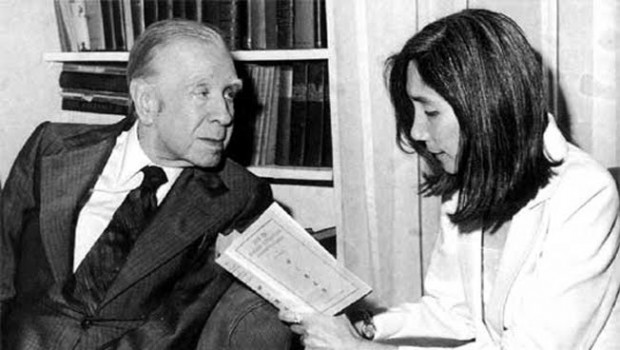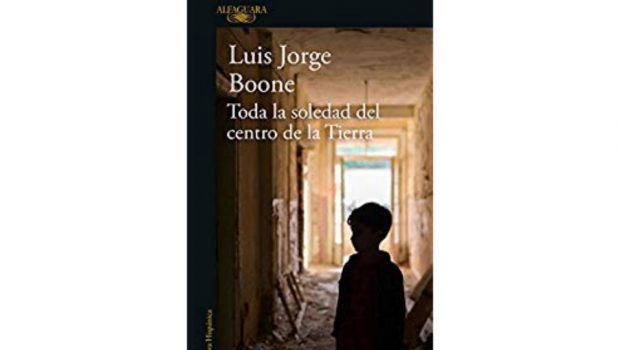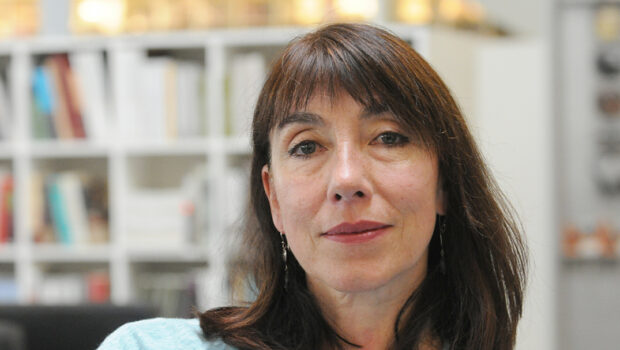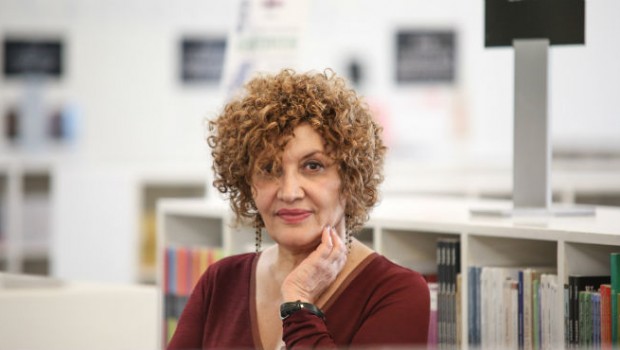Experience With Power
Debra D. Andrist
 Gwendolyn Díaz Ridgeway,
Gwendolyn Díaz Ridgeway,
Women and Power in Argentine Literature: Stories, Interviews and Critical Essays.
Austin, University of Texas Press.
376 pages.
An Argentine herself, as well as a trained and experienced academic in the field of literature, with this critical anthology, Díaz provides a unique cultural and linguistic opportunity for the English-dominant reader to access and gain insights into Argentine women writers not necessarily known outside the Spanish-language milieu. Translated by a variety of translators, including Díaz herself, and mostly available in English for the first time, a work or two by each author elucidates the gender and power themes on which Díaz focuses.
For the educated bilingual reader, who may–or may not–recognize all the names and works, the book is equally as valuable, offering an intensive and extensive personal interview with each author. Preceded by Díaz’s own short commentary about each and her works, these “conversations” highlight their lives and professional experience in the authors’ own words.
The book also serves as a reference text for both linguistic groups by defining both women and power in terms of how these themes structure Díaz’s approach to the topics and authors, as well as how she chose the interview questions and representative work(s) for each author with these themes in mind. Díaz briefly summarizes the general in-situ literary history and criticism and feminism in an opening introduction, plus enumerates the individual authors’ bibliography of their works in the original Spanish and in translation to English at the end of each of the fifteen sections.
Featuring fourteen native-born Argentine women writers, and one adolescent immigrant to that country, representing all ages, ethnic and socio-economic origins, the book progresses chronologically. The majority of these women did have familial financial and social advantages, as well as urban, if provincial, upbringing, but what they most clearly share is that each has had the advantage of education and addresses the gender politics endemic to her sex, whether overtly or covertly, in her literary production. In terms of their experiences with the Argentina’s socio-political and socio-economic power issues, the initial authors date from, and address, mostly by analogy, the fascist politics of Perón years and the later “Dirty War;” the final authors were born in the last third of the Twentieth Century and their experience with power is far more economic than political.
Rather than by her own name and accomplishments, number ten among the authors, María Kodama, is perhaps (sadly) best known in and out of Argentina as Jorge Luis Borges’ widow and long-time collaborator. However, she is an accomplished writer of numerous short stories in her own right, though little published by choice. Díaz’s interview with Kodama […] allows Kodama to tell her own story as an independent woman.
For example, the fourth author, Luisa Valenzuela is well-known in international literary circles, particularly due to her ten years in self-imposed exile in New York during the “Dirty War.” Arguably the most openly politically- critical and sexually-charged among the featured writers in many of her works, Valenzuela has absolutely established herself on the Argentine and international literary scenes on her own merits, though she is the daughter of Luisa Mercedes Levinson, a noted Argentine woman writer early on in the uniquely high number of Twentieth-Century Argentine women writers. Díaz does mention that tie in her interview questions but does not dwell upon it, choosing to elicit Valenzuela’s insights on the innovations in style she employs and her treatment of power on numerous levels.
Rather than by her own name and accomplishments, number ten among the authors, María Kodama, is perhaps (sadly) best known in and out of Argentina as Jorge Luis Borges’ widow and long-time collaborator. However, she is an accomplished writer of numerous short stories in her own right, though little published by choice. Díaz’s interview with Kodama does focus on her on-going professional and personal relationship with Borges and his works, yet allows Kodama to tell her own story as an independent woman.
While neither focusing on, nor avoiding, the authors’ biographical ties to the literary scene, and/or to that post-1945 (a frequently- quoted date as the beginning) quintessentially- Latin American literary genre of magical realism, Díaz emphasizes each author’s unique production and prowess in terms of gender and power.
Posted: May 9, 2012 at 5:41 pm










